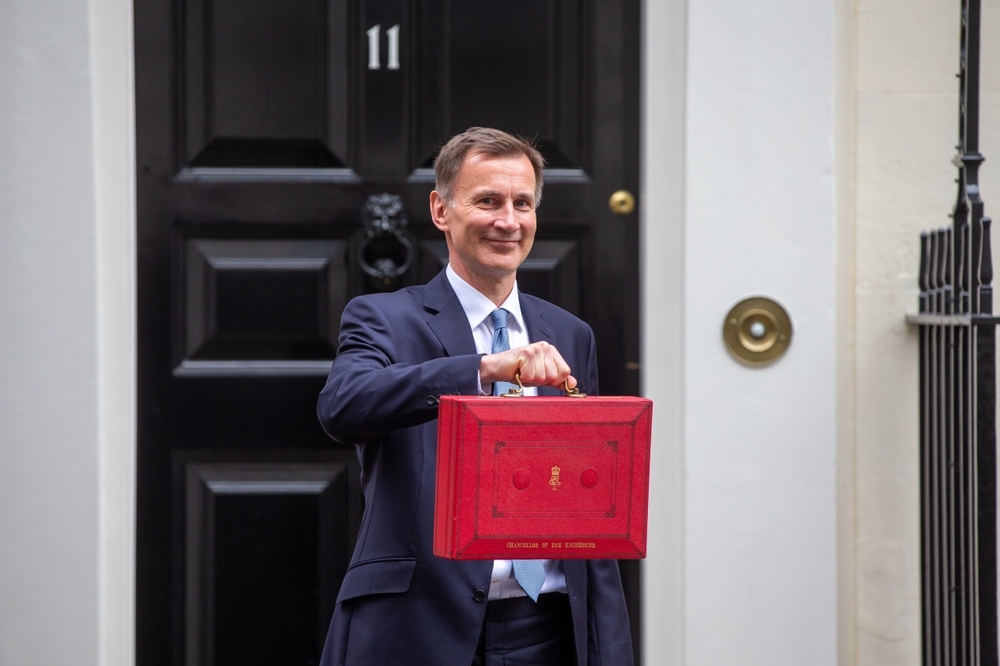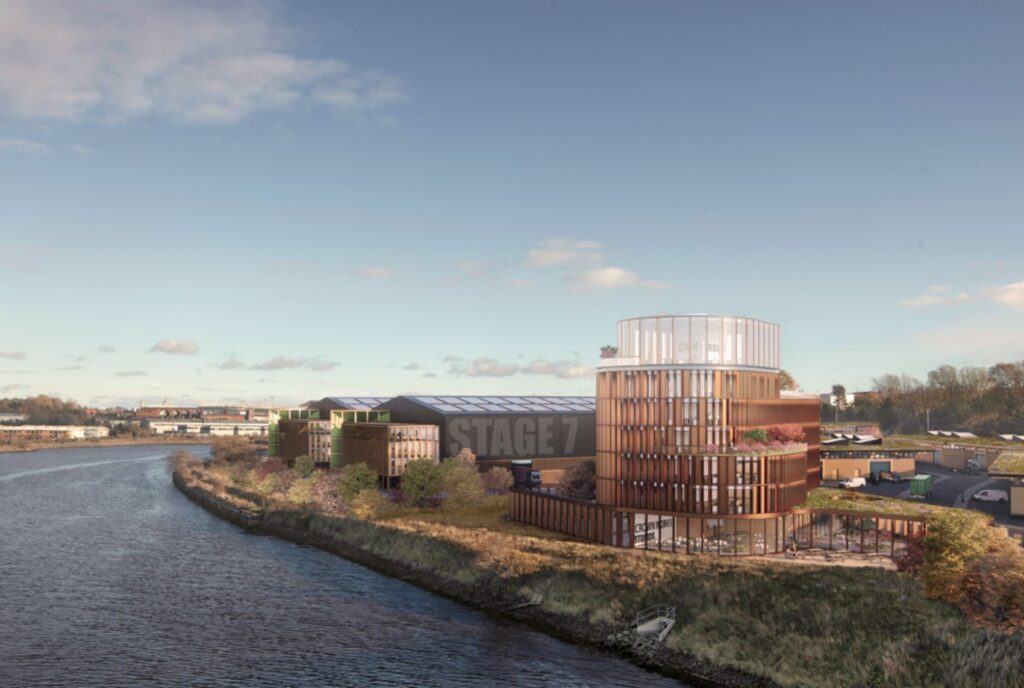
Typically there’s not an awful lot of mystery left when it comes to Budget day. However, Jeremy Hunt had a few positive surprises for the North East.
Most notably, the Chancellor announced a ‘trailblazer’ devolution deal for the North East, which the official Budget documents say ‘will provide a package of new funding potentially worth more than £100m, including a new Growth Zone to support the region’s growth ambition’.
These ‘trailblazer’ deals, two of which are already in place for Greater Manchester and the West Midlands, with more coming in several other areas, give regions substantial autonomy over how they spend devolved funds.
Under the deal, the Treasury will essentially hand over a chunk of cash to the North East mayor’s office, with few restrictions on how it’s used, allowing tailored solutions to local problems.
The leaders of the seven councils which will make up the North East Mayoral Combined Authority welcomed the deal, saying ‘from enabling investment for Crown Works Studios to securing essential transport funding to a taskforce to tackle rural and coastal issues, this is a deal we have custom made for the North East. Today’s announcement will help us to do more and is rightful recognition that we are better placed to identify the priorities for our region’.

The Crown Works Studio project was one of the region’s key asks from this Budget — as outlined in The QT last week — and Sunderland City Council and the new combined authority have said they intend to use the ‘trailblazer’ status to bring £120m to the table, helping leverage £450m in private funding.
Leo Pearlman, managing partner of Fulwell 73, who has been leading the scheme, reacted by saying ‘today is an historic moment for Sunderland, the North East and the UK’s screen industries. Crown Works Studios will help transform the city we love into a global hub for big budget film and TV production’.
The new deal also contains specific mention of the Riverside Sunderland site, Forth Yards in Newcastle and bringing forward funding to keep the Tyne and Wear Metro on the rails.
There’s more control over adult education, housing, transport, energy and space to create a plan for growth in the creative industries, heritage, sport and the visitor economy.
Overall, it’s a big step forward on some significant regional projects, and welcome flexibility to address many of the challenges the North East faces as we enter a new era of local decision making.
There was more good news too on another of the North East’s key asks — hidden in the detail of the Budget documents was further support for the region’s low carbon and green economy.

The Treasury has announced that as part of their investment zones scheme, the North East zone will ‘support new investment and innovation in electric vehicle manufacturing, battery production, offshore wind and low-carbon materials, building on the region’s longstanding strengths in automotive and advanced manufacturing and increasing prominence as a hub for clean energy’.
The region will benefit from tax incentives at Blyth and the International Advanced Manufacturing Park at Sunderland and South Tyneside.
There will be £20m for Co. Durham’s NETPark and the Tyne Powered Economic Corridor, centred on North Tyneside, where global businesses like Equinor and Siemens are already located.
There will also be £15m for skills co-delivered with the private sector, £15m for infrastructure and £5m for innovation and productivity in the green economy.
In the south of the region, a separate investment zone focused on digital and creative industries is being developed, and there was also £20m for community regeneration in Darlington, as part of a push to support regional towns.
- Read more: Region’s criminal justice system at tipping point
- Read more: Why we must care better for carers
This is all welcome news and, taken alongside the ‘trailblazer’ deal, ticks many of the key boxes for regional growth.
However, turning (to use the Budget parlance) to perception, it was presented — as was expected — as a tax cutting budget.
At no point in his hour-long speech did the Chancellor mention the economic recession the country entered in the second half of last year and which may still be ongoing.
Instead, it was a story of how fiscal prudence and falling inflation meant there was room for tax cuts.
That gives cause for caution, especially around the role of central government in delivering big projects and long-term stability for public services.

Take, for example, another high-profile North East-based project in the planned re-opening of the Leamside Line.
A pot of £350,000 was allocated this week to continue the development of a business case for the project, which has broad benefits across the country.
While the line is in the North East, and re-opening would boost local economies in County Durham, it would also provide valuable extra capacity alongside the East Coast Mainline, as well as significant additional resilience on the national rail network.
It would, however, cost upwards of £1 billion to deliver.
There have been mixed messages from the Government on the project.
First, it was included in a list of schemes which would benefit from ‘Network North’ money following the cancellation of HS2. Then, 24 hours later, it was removed from that list.
Then, the day before the business case funding was announced, rail minister Huw Merriman said it was up to the North East to decide if it wanted to re-open the line.
A project of that scale, with benefits felt up and down the country, is not the sort of thing devolution — nor the regional funding which comes with it — is intended to deliver.
Faced with a choice between investing in projects like Leamside and providing clarity on baseline funding for local government or Further Education, the Chancellor chose instead the political expediency of tax cuts.
Yes, there was (fairly modest) investment in the North East’s low carbon economy.
Yes, there is greater autonomy coming with the ‘trailblazer’ deal which has enabled us to unlock the Crown Works Studio site.
But there was nothing which shored up the fundamentals.

In shaving another 2p off National Insurance, alongside the same-sized cut at the Autumn Statement, the Chancellor celebrated saving the average employee another £450 a year.
But the reality, because the rate of National Insurance is uniform across income bands, is that those on higher incomes will save more and those on lower incomes will save less.
Two percent of a lot is more than two percent of a little.
The National Insurance tax cut is a regressive measure, which benefits the well-off more.
In the North East, where incomes are lower, where services are stretched, where infrastructure is creaking, it’s not tax cuts but proper long-term investment that’s needed.
It’s also important to note that the North East’s public sector accounts for nearly 21% of overall employment, compared to 17% across the country as a whole. That’s the livelihoods of more than a quarter of a million people in the region.
In that context, a cut to National Insurance risks giving to the people of the North East with one hand, while taking with the other.
So, while we celebrate some really significant good news for the North East, including more powers and greater flexibility for our decision makers, it’s important to also recognise that devolution can’t solve every problem.
There remains a role for central government, and we need to make sure they keep playing it.










